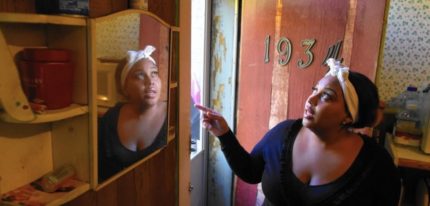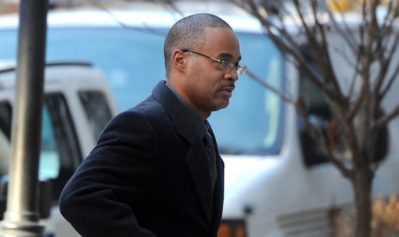Local civil rights groups are up in arms over Maryland Gov. Larry Hogan’s decision to scrap plans for an urban mass transit system in favor funding road projects that would benefit white suburban and rural residents.
According to The Guardian, the NAACP Legal Defense Fund (LDF) has filed a civil rights lawsuit over Hogan’s decision. The LDF say Hogan’s plan discriminates against Baltimore’s Black residents.
Transportation is a major issue in Black neighborhoods. Many low-income residents don’t own cars and rely on public transportation. But if they don’t have an effective public transportation system, they can’t get to higher-paying jobs which are often located far from their homes.
The Guardian said Baltimore’s public transit system is so bad the city offered Amazon a $100,000 forgivable loan to help pay for it’s fleet of private shuttles. Susan Yum, a spokesperson for the Baltimore Development Corp, told The Baltimore Sun, the city’s bus system “does not provide access to where the jobs are available now.”
“From some parts of the city, the commute to some areas where there are jobs can be as long as 90 minutes each way,” Yum said.
The proposed rail system, known as the Red Line, would have helped many Black residents get to work.
“The lack of mobility, long commuter times, have critical implications for families in Baltimore,” said Sherrilyn Ifill, president and director-counsel for LDF. “We regard the cancellation of the Red Line as a critically important moment that must be addressed and must be engaged.”
According to the complaint, a transportation economist said the switch from a subway line to the new highway initiative would cost Black residents about $19 million in user benefits by 2030. White Maryland residents would see a $35 million user benefit over the same period. Sen. Barbara Mikulski said Hogan’s decision to turn down a federally-funded project was baffling.
“I never thought, ever, in my closing year in the U.S. Senate, I would see a letter saying the Baltimore region rejects $900m in federal investment,” Mikulski said.
However the LDF’s complaint says Maryland has a long history of policies that discriminate against Black residents.
“Maryland, including the City of Baltimore, has exhibited a preference for its white residents over its African American residents in highway construction decisions since at least the 1930s,” said the complaint.
According to the complaint, in the 1960s the government proposed a new expressway through the predominately Black Franklin-Mulberry corridor in Baltimore’s Harlem Park neighborhood.
“As a result, Harlem Park residents stopped investing in their homes, and the neighborhood became filled with deteriorating and abandoned buildings,” said the LDF’s complaint.
The Guardian said that Baltimore has used race-based housing covenants to enforce segregated housing. Realtors also practiced “blockbusting,” a tactic where they used fears of Black people moving into a neighborhood, to convince white homeowners to sell for cheaper prices. This practice means that even today, neighborhoods are still largely segregated.
In 1965, residents of predominantly white areas, such as Anne Arundel County, objected to a light rail system because they feared it would bring urban (Black) residents into their neighborhoods. They complained “that the Metro would enable poor, inner-city blacks to travel to the suburbs, steal residents’ TVs and then return to their ghettos in Baltimore.”
According to The Guardian, last year Carroll County introduced a “Mass Transit Protection Resolution,” intended to keep public transit riders from Baltimore out.
“[Mass transportation] led to the breakdown of those two shopping centers (in Baltimore) and we are not going to use mass transit to connect either Baltimore County or Montgomery County [to Carroll],” said county Commissioner Doug Howard in a Carroll County Times article.



